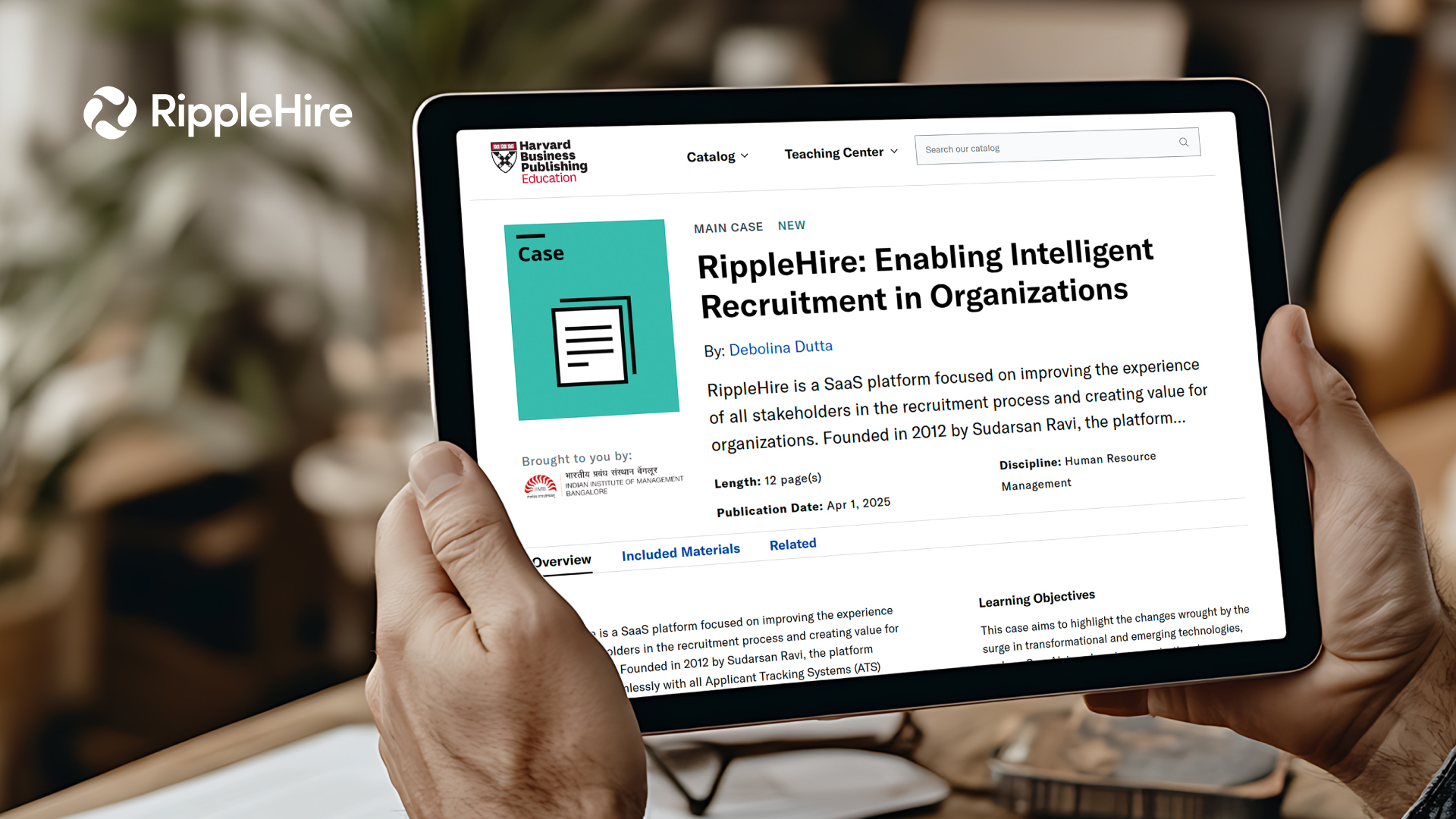What is Skills-based Hiring?
In the current hiring landscape, do recruiters really care so much for credentials alone? Of course, educational qualifications and experience matter, but the trend has shifted towards hiring based on the skills that the candidates possess.
Skills-based hiring is the term given to the hiring strategy in which the job skills of the candidates are given importance ahead of their credentials.
The main reasons for the evolution of skills-based hiring as the go-to strategy are many, and listed below are the main ones:
1) Even the most qualified and experienced candidates frequently fail to develop the skills required to excel on the job
2) The onboarding period for candidates who lack the skills even if they are professionally qualified, is high because of the need for additional training, driving the recruitment costs up
3) Apart from attitude, skillset is the most critical quality needed to deliver top performance.
4) The job market itself is driven by skilled candidates who can work independently, and their demand has gone up, especially with the increase in remote working.
Challenges in Skills-based Hiring
While skills-based hiring is increasingly popular, it is not free from pitfalls. In this section, we briefly discuss the challenges in skills-based hiring.
Identifying candidates with the right skills is difficult
All candidates that apply for a given job would claim to possess the skills for the job and would probably craft a resume that highlights the job skills. As a recruiter, it is important not to be lured by this trick and you need to develop the art of identifying the authenticity of the claim to the skills as well.
For example, if a candidate claims to know Python programming well, then look for mentions and even references that would vouch for this claim.
Assessing the skills based on just one interview may be inadequate
Even after shortlisting the resumes based on the skills, it is a challenge to assess the skill through just a couple of rounds of interviews. This is because some skills are acquired over a length of time and are quite vast, and there is no sure shot set of questions you can ask to evaluate the candidate’s range of expertise in a given skillset.
A great way to overcome this hurdle is to have a combination of verbal as well as written technical interview rounds, and have the answers manually checked by an expert.
There is the risk of undervaluing credentials in favor of skills alone
This is quite a tricky situation for the talent acquisition specialists, because on one hand there is evidence of capability in the form of credentials, and on the other hand there is proof of competence in the form of demonstrated skills.
The best tactic to counter this dilemma would be to look for a mix. For example, if you are looking for a telecom expert, then an engineering degree in Telecommunications is probably crucial.
But in any case, avoid assuming that a degree will guarantee performance. Modern history has proven that it is the skill of it that drives results and not paper education.
There are chances of missing high-potential just because they lack a skill at present
This can happen if you are too focused on the skill needed but not on the goal of the job. To illustrate this point, let’s take the example of an Inside salesperson’s job. Do you really need the candidate to be able to sell you a pen in a practiced manner? Or do you need someone with the tenacity, clear communication, and agility of thinking to overcome objections and rejections? It would really be enough if the salesperson is hardworking enough to make enough calls for that potential to become expertise at the required skill.
Skills can still be developed, but there is no substitute for the right attitude
A word of caution though: attitude is often faked by candidates by projecting enthusiasm and willingness to work hard for a long period of time. So as the recruiting decision-maker, you need to develop the skill of judging which candidate is likely to work hard with commitment, and which of them will forget all about the value of being industrious.
And then there is culture fit and flexibility, and such other qualities needed to be successful on the job. So don’t ignore the value of a good attitude, but judge carefully.
5 Tips for Successful Skills-based Hiring
Now that you are armed with knowledge of the challenges in skills-based hiring, it’s time to dive into some top tips for successful hiring based on skills.
Create a job description that calls for skills
Plan well from the very beginning and craft a job description that focuses on the skills needed for the job. Make sure that you emphasize that while you value qualification and experience, there are no barriers to the candidate with the right skill and attitude. Don’t restrict the job description by asking only for candidates with a given degree or a certain number of years in a given role.
Rope in an expert to assess the candidate’s skills
Quite a few jobs require expert skills and you are a talent acquisition expert, not a job expert. So be humble and involve a job expert to evaluate the skills claimed by the candidate. This is very important because a few candidates are fully capable of presenting their limited skill in such a way that it looks authentic to a non-expert. And you don’t want to make the mistake of hiring based on such false impressions.
Leverage employee referral programs
A lot of your existing employees will probably know ex-colleagues and friends in the similar field. So there is a high chance that a happy current employee will refer to someone that is well-skilled. But while implementing your employee referral program, you just need to ensure that you explain the value of the skill needed to perform the job to the existing employee.
Pro tip: Use an employee referral platform to drive a successful employee referral program.
Tap into the candidate pool from talent communities
A really great place to look for genuinely skilled workers is a talent community. But you need to know to look for posts and mentions that illustrate the skill level of the candidate. Look for authenticated and endorsed claims of candidates to a certain skill
Save time and cost overall by using an ATS
Knowing how to drive skills-based hiring is one thing, but actually executing this strategy successfully is a different ball game altogether, especially if your organization is a large one. You should probably rely on a good quality Talent Acquisition Cloud to save yourself tons of time, energy, and cost, and eventually make the process smoother and more effective.
To Sum It Up
There are a handful of tips and best practices that you can follow to achieve successful skills-based hiring. And we have also covered the challenges involved in going for this strategy. But perhaps the biggest challenge of it all is not to lose sight of your organization’s goal behind wanting to go skills-based hiring.
Your organization is counting on you, the talent acquisition specialist, to hire the right candidate for the right job, and who will eventually contribute to the organization’s success. With this big picture in mind, you can improvise along the way in implementing skills-based hiring while successfully avoiding the pitfalls it comes with.
No hiring strategy is perfect, but if implemented well, skills-based hiring can help you make some excellent hiring decisions, and remain a talent acquisition superhero!






